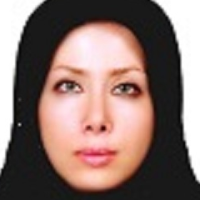Testing Multidimensional and Hierarchical Model of School Motivation Questionnaire
Author(s):
Abstract:
Abstract
Objective
One of the theories that motivation into a multi-objective model considers, Mayer's theory of personal investment. This theory is a useful framework for evaluating multi-dimensional and hierarchical nature of goal provides the motivation. The aim of this study is to investigate a multi-dimensional and hierarchical structure of achievement goal orientation. Methods
The population consisted of all high school students in Shiraz who were enrolled in school year 91-90. The sample of 850 students (420 boys, 415 girls) was selected using random sampling. All participants completed questionnaires of school motivation. First-order and higher-order models were tested using confirmatory factor analysis. Finding
Confirmatory factor analysis results indicated that the data with a model of eight first-order factors with four second-order factors are a better fit. Reliability analysis using Cronbach's alpha showed that seven factor, task, effort, competition, social power, social concern, praise have an internal consistency. First-order correlation range was 0.26 (Homework - social power and social concerns - praise) to 0.62 (task-effort). Conclusion
The findings of the study provide a strong theoretical structure and a tool for future research in school motivation. Theoretical and practical implications of the findings were discussed.Keywords:
Language:
Persian
Published:
Training & Learning Researches, Volume:15 Issue: 1, 2018
Pages:
11 to 22
https://www.magiran.com/p2080774
سامانه نویسندگان
مقالات دیگری از این نویسنده (گان)
-
Modeling Adolescents’ Problem Behaviors Based on Personality Structure: the Mediating Role of Deviant Dependence on Peers
Mahdiye Ajam Zibad, Isaac Rahimian-Boogar *,
Journal of Applied Psychology, -
The Mediating Role of Academic Self-Efficacy in the Relationship between Diffusion Academic Identity, Ambivalent Attachment Style and Adaptive Cognitive Emotion Regulation Strategies with Addiction to Social Networks among Students
Ferdous Ebrahimi Moaghar, Isaac Rahimian Boogar *,
Biquarterly Journal of Cognitive Strategies in Learning, -
Self-respect, child's attitude towards parents and bullying in school students
Masoumeh Moradyan*, , Mahmmod Najafi
Journal of Teaching and Learning Research, -
Comparing feelings of loneliness in students with learning disabilities and normal students
Samaneh Mardani, Farahnaz Kiyan Ersi *
Journal of Psychological Research,




